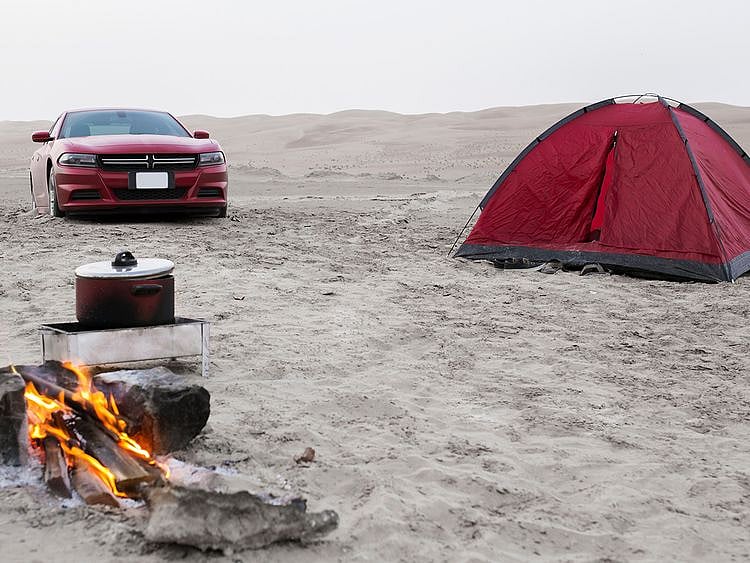Guide: Do I need a permit to camp in the UAE?
Find out the places where you can camp, guidelines you should follow

Dubai: Do you need a permit if you are planning to set up a tent and bonfire in the desert or out in the open? Well, that depends on where you are planning to camp. While most places are free to access for residents and visitors, it is important to apply for a permit in Dubai if you plan to set up a long-term camp.
Here are all the details.
When do I need a permit?
The winter camping season often starts from late October all the way up to April and according to Dubai Municipality, while weekend campers do not require prior permission to pitch tents in the desert, there are certain rules and permit requirements when it comes to long-term camping trips. Those who go camping for longer durations are required to pay a fee and obtain permission, the details for which you can find here.
Where can you camp overnight?
One of the easiest way to find a spot to set up a camp that is closer to the main highways, as it is easier to access facilities and reach for help when needed. Going deep into the desert should only be done if you are trained in desert driving. Some popular places for overnight camps are:
1. Al Qudra Lakes
2. Wadi Shawka, Ras Al Khaimah
3. Suhaila Lake, Hatta
4. Al Jurouf, Fujairah
5. Al Wathba Lake Camp, Abu Dhabi
As reported by Gulf News earlier, your camp site should not be in low areas such as stream valleys, or next to a cliff, and the tent site should also not be set up at the base of a cliff.
Tents should be set up far away from cooking stations or where wood is burned, and be a safe distance from fuel depots, fuel storage tanks, generators and electricity poles.
The guidelines also state that tents should be in high areas far enough from water tide levels.
Campers are also advised to avoid mud floors which may be infested with scorpions, ants and other insects. Use flat lands that are free of stones and potholes to avoid creating a moist environment in the tent. The guidelines further stress avoiding shallow or semi-marsh areas in which water may appear as a result of a rise in sea-level.
How to avoid a fire in camps
- All light sources and lanterns should be kept at least 50cm away from the tent. - Do not use heated equipment, such as barbeques and coal, inside the tent. - Ensure a fire extinguisher is available nearby or inside the tent. - Do not use open flames, such as candles or lighters, inside the tent. - Firewood must be stored away from the tent by a minimum of 15 feet at any given time.
Network Links
GN StoreDownload our app
© Al Nisr Publishing LLC 2026. All rights reserved.